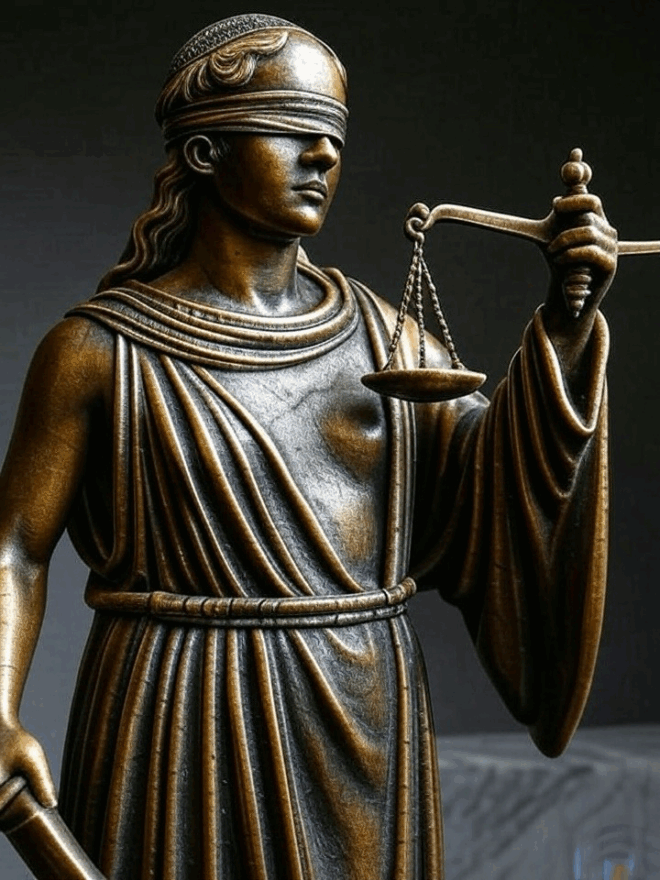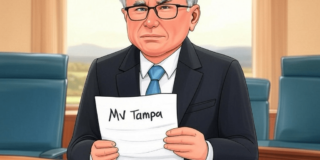
In recent years, the strategic use of lawfare – legal actions intended to silence or intimidate critics – has emerged as a formidable tool for advocacy groups aiming to control narratives in public discourse. In Australia, pro-Israel advocacy groups, often collectively referred to as the Zionist lobby, have employed this tactic to target journalists, academics and activists who challenge the dominant narrative surrounding Israel, particularly regarding its policies towards Palestine. By leveraging defamation lawsuits, complaints to regulatory bodies, public smear campaigns and institutional pressure, these groups impose significant financial, emotional and professional costs on their targets. The objective is not merely to win legal battles but to create a chilling effect that deters others from questioning a carefully curated “reality” that aligns with Zionist interests. This post will delve into the mechanisms of this lawfare in Australia, provide detailed case studies, analyse its impact on free speech and explore pathways to counter its effects, with a focus on the Australian context.
The Mechanisms of Lawfare in Australia
Lawfare, as practiced by the Zionist lobby, exploits Australia’s legal and institutional frameworks to suppress dissent. Defamation laws, historically plaintiff-friendly, have been a primary weapon. Until reforms in 2021, Australian defamation laws placed the burden on defendants to prove the truth of their statements, often requiring costly and protracted legal battles. Even with the introduction of a public interest defence, the financial and psychological toll of litigation remains prohibitive for many journalists and academics. Beyond defamation, the lobby utilises complaints to media regulators like the Australian Press Council, submissions to parliamentary inquiries and coordinated public campaigns to pressure individuals and institutions.
Prominent organisations within the Zionist lobby, such as the Australia/Israel & Jewish Affairs Council (AIJAC), the Executive Council of Australian Jewry (ECAJ) and the Zionist Federation of Australia (ZFA), maintain close ties with Israeli advocacy networks, including organisations like Shurat HaDin, an Israel-based legal center known for pursuing lawsuits against critics of Israel worldwide. Their strategies are multifaceted, combining legal threats with public relations campaigns that accuse critics of antisemitism, a charge that carries severe reputational consequences.
Case Studies of Lawfare in Australia
Journalism: The Targeting of Sophie McNeill and the ABC
One of the most notable examples of lawfare in Australian journalism involves Sophie McNeill, a former ABC Middle East correspondent. Between 2015 and 2019, McNeill’s reporting on Israel’s occupation of Palestine, including its military actions in Gaza and the expansion of illegal settlements, drew intense scrutiny from pro-Israel groups. AIJAC published multiple articles accusing McNeill of bias and “selective reporting.” In 2018, following her coverage of Israel’s response to the Great March of Return in Gaza, where Israeli forces killed over 180 Palestinian protesters, AIJAC and the ECAJ lodged formal complaints with the ABC’s internal review processes and the Australian Communications and Media Authority (ACMA), demanding investigations into alleged breaches of impartiality.
While no lawsuits were filed, the sustained campaign against McNeill exemplifies lawfare’s broader strategy. The complaints triggered internal reviews, forcing McNeill and her editors to divert time and resources to defend her work. Public attacks, amplified through op-eds in News Corp outlets like The Australian, labeled her as antisemitic, despite her rigorous adherence to journalistic standards. The pressure culminated in 2019 when McNeill left the ABC, citing burnout. Her case sent a clear message to other journalists: reporting critically on Israel risks relentless harassment and professional ostracism.
The Crikey Case: A Broader Context
While not directly tied to the Zionist lobby, the 2022 case of Transnational Security Solutions v Crikey provides a parallel example of how legal intimidation operates in Australia. Crikey, an independent news outlet, published an article questioning the operations of a private security firm with alleged links to Israeli interests. The firm sued for defamation, demanding Crikey retract the article and pay damages. The lawsuit, which dragged on for months, cost Crikey significant legal fees, despite ultimately settling out of court. This case underscores the vulnerability of small media outlets to lawfare, a tactic the Zionist lobby has exploited in other contexts. For instance, in 2020, AIJAC threatened legal action against New Matilda over an article alleging undue Israeli influence in Australian politics. The mere threat of litigation forced New Matilda to issue a clarification, illustrating how even the specter of litigation can censor critical reporting.
Academia: Jake Lynch and the BDS Controversy
In academia, the case of Jake Lynch, a former director of the Centre for Peace and Conflict Studies at the University of Sydney, is emblematic of lawfare’s reach. In 2013, Lynch publicly supported the Boycott, Divestment and Sanctions (BDS) movement, which calls for economic and cultural boycotts of Israel to protest its policies. His stance drew immediate backlash from pro-Israel groups, including AIJAC and Shurat HaDin. In 2014, Shurat HaDin filed a complaint with the Australian Human Rights Commission, alleging that Lynch’s refusal to collaborate with Israeli academic institutions constituted racial discrimination under Australia’s Racial Discrimination Act. The complaint was eventually dismissed, but not before Lynch incurred significant legal costs and faced public vilification.
The campaign against Lynch extended beyond legal action. Pro-Israel groups pressured the University of Sydney to discipline him, accusing him of antisemitism and undermining academic integrity. Articles in The Australian and The Daily Telegraph amplified these accusations, portraying Lynch as a radical extremist. The university stood by Lynch, but the ordeal took a toll on his career and mental health, discouraging other academics from engaging with the BDS movement or criticising Israel.
University of Sydney Lecture Series (2023)
Another academic case occurred in 2023 when the University of Sydney hosted a lecture series featuring Palestinian scholars discussing Israel’s policies through the lens of apartheid. The ECAJ and AIJAC condemned the series as “antisemitic” and “one-sided,” lobbying the university to cancel it. They organised a letter-writing campaign, supported by prominent Jewish community leaders and threatened to escalate the issue to the federal government’s Tertiary Education Quality and Standards Agency (TEQSA). The university faced additional pressure from donors, some of whom threatened to withhold funding. While the lecture series proceeded, the controversy led to heightened security measures and a public apology from the university for “causing distress.” The incident highlighted how lawfare extends beyond lawsuits to include institutional and financial coercion, eroding academic freedom.
Political Pressure: Anne Aly and Palestinian Advocacy
Lawfare’s impact is not limited to journalists and academics; it also affects public figures. In 2019, Labor MP Anne Aly, an Egyptian-Australian parliamentarian, faced a coordinated campaign from pro-Israel groups after meeting with Palestinian advocates during a trip to the Middle East. AIJAC and the ZFA accused her of “consorting with terrorists” and demanded she clarify her stance on Israel. The campaign included op-eds in The Australian Financial Review and social media attacks on platforms like X, where Aly was labeled an antisemite. While no legal action was taken, the public shaming forced Aly to issue a statement reaffirming her support for a two-state solution, a move seen as capitulation to appease her critics. This case illustrates how lawfare’s tactics – public vilification, institutional pressure and accusations of antisemitism – extend to elected officials, stifling political discourse.
The Chilling Effect on Free Speech
The cumulative effect of these cases is a profound chilling effect on free speech in Australia. Journalists, particularly freelancers or those at independent outlets like Crikey or The Guardian Australia, lack the resources to withstand defamation suits or sustained public campaigns. The ABC, despite its public funding, is vulnerable to political pressure, as seen in its 2020 budget cuts following criticism from pro-Israel groups and conservative politicians. Smaller outlets, such as New Matilda or Pearls and Irritations, often self-censor to avoid legal or financial ruin.
In academia, the fear of being labeled antisemitic – a charge that can derail careers – is pervasive. Early-career researchers and non-tenured faculty are particularly cautious, avoiding topics like Israel’s occupation or the BDS movement. The 2021 case at the University of Melbourne, where a course syllabus was reviewed after complaints from AIJAC about “anti-Israel bias,” underscores this trend. The review, prompted by a single lecture on Palestinian history, led to changes in course content, signalling to academics that critical scholarship on Israel is risky.
The conflation of criticism of Israel with antisemitism is a key tactic in this chilling effect. The International Holocaust Remembrance Alliance (IHRA) definition of antisemitism, adopted by some Australian institutions, has been criticised for its broad language, which can equate criticism of Israel with anti-Jewish hatred. In 2022, the Australian government’s endorsement of the IHRA definition was praised by the ECAJ but raised concerns among free speech advocates, who warned it could be weaponised to silence dissent. This dynamic creates a climate where journalists and academics self-censor, limiting public access to diverse perspectives.
Broader Implications for Australian Democracy
The Zionist lobby’s lawfare poses significant threats to Australian democracy. Free speech, a cornerstone of democratic societies, relies on the ability of journalists and academics to challenge powerful interests without fear of retribution. When well-funded advocacy groups can exploit legal and institutional processes to silence critics, the public’s right to know is undermined. This is particularly concerning in Australia’s concentrated media landscape, where News Corp controls roughly 60% of print media circulation, often amplifying pro-Israel narratives.
Lawfare also distorts Australia’s foreign policy debate. Despite growing public sympathy for Palestine – evidenced by a 2023 YouGov poll showing 34% of Australians support Palestinian statehood compared to 22% for Israel – bipartisan support for Israel remains entrenched. The 2022 Australian government’s muted response to Israel’s designation of six Palestinian NGOs as terrorist organisations, despite condemnation from Amnesty International and Human Rights Watch, reflects this alignment. Journalists and academics who highlight such discrepancies face accusations of antisemitism, discouraging scrutiny of Australia’s foreign policy.
Moreover, lawfare exacerbates social divisions. By framing criticism of Israel as antisemitic, the Zionist lobby risks alienating Jewish Australians who oppose Israel’s policies, such as members of Independent Australian Jewish Voices, as well as Muslim and Arab Australians who feel marginalised. The 2021 protests in Sydney and Melbourne over Israel’s Gaza bombardment saw clashes between pro-Palestinian activists and pro-Israel counter-protesters, fueled in part by inflammatory rhetoric from advocacy groups. This polarisation undermines Australia’s multicultural cohesion.
Countering Lawfare: Pathways Forward
Addressing the Zionist lobby’s lawfare requires a comprehensive strategy:
1. Legal Reforms: Strengthening Australia’s defamation laws is critical. The 2021 reforms, which introduced a public interest defence, are insufficient. Anti-SLAPP legislation, implemented in Victoria in 2024, could deter frivolous lawsuits by allowing courts to dismiss cases designed to intimidate. Expanding this model nationally would protect journalists and academics.
2. Institutional Support: Media and academic institutions must bolster defences for their staff. The ABC’s legal fund, established in 2022 to support journalists facing defamation suits, is a model worth emulating. Universities could create similar funds or legal clinics to assist academics targeted by lawfare. The University of Sydney’s 2023 decision to provide legal support for faculty facing complaints over the Palestinian lecture series is a positive step.
3. Public Education: Countering the conflation of antisemitism with criticism of Israel requires public education. Community organisations, including Jewish groups like Independent Australian Jewish Voices and Palestinian advocacy groups like the Australia Palestine Advocacy Network, can foster nuanced discussions. Workshops, public forums and media campaigns can clarify the distinction between legitimate criticism and bigotry.
4. Solidarity Networks: Journalists and academics must build collective resistance. The 2020 open letter by over 200 Australian media workers defending press freedom in the face of defamation threats is a precedent. Collaborative platforms, such as the Media, Entertainment & Arts Alliance (MEAA), can provide legal and financial support. On X, grassroots campaigns have exposed lawfare tactics, with posts from accounts like @TranscendMedia gaining traction in 2024 for documenting AIJAC’s pressure on journalists.
5. Political Advocacy: Engaging policymakers to protect free speech is essential. The 2023 Senate inquiry into press freedom, which recommended stronger protections for public interest journalism, offers a platform to address lawfare. Advocacy groups like the Alliance for Journalists’ Freedom can push for reforms to shield critics of powerful interests.
Conclusion
The Zionist lobby’s lawfare against journalists and academics in Australia is a deliberate strategy to enforce a singular narrative about Israel and its policies. Through defamation lawsuits, institutional pressure and public vilification, groups like AIJAC, the ECAJ and Shurat HaDin impose steep costs on those who challenge the status quo. Cases like Sophie McNeill’s harassment, Jake Lynch’s legal battles and the University of Sydney’s lecture series controversy illustrate the breadth of this tactic. The resulting chilling effect undermines free speech, distorts public discourse and threatens Australia’s democratic fabric. By pursuing legal reforms, institutional support, public education and collective resistance, Australia can reclaim space for open debate about Israel-Palestine and other contentious issues. Only by confronting lawfare head-on can the nation ensure that journalists and academics are free to challenge the “carefully choreographed reality” without fear of retribution.


